How WordTheatre came to host big-name Hollywood actors reading little-known literature onstage
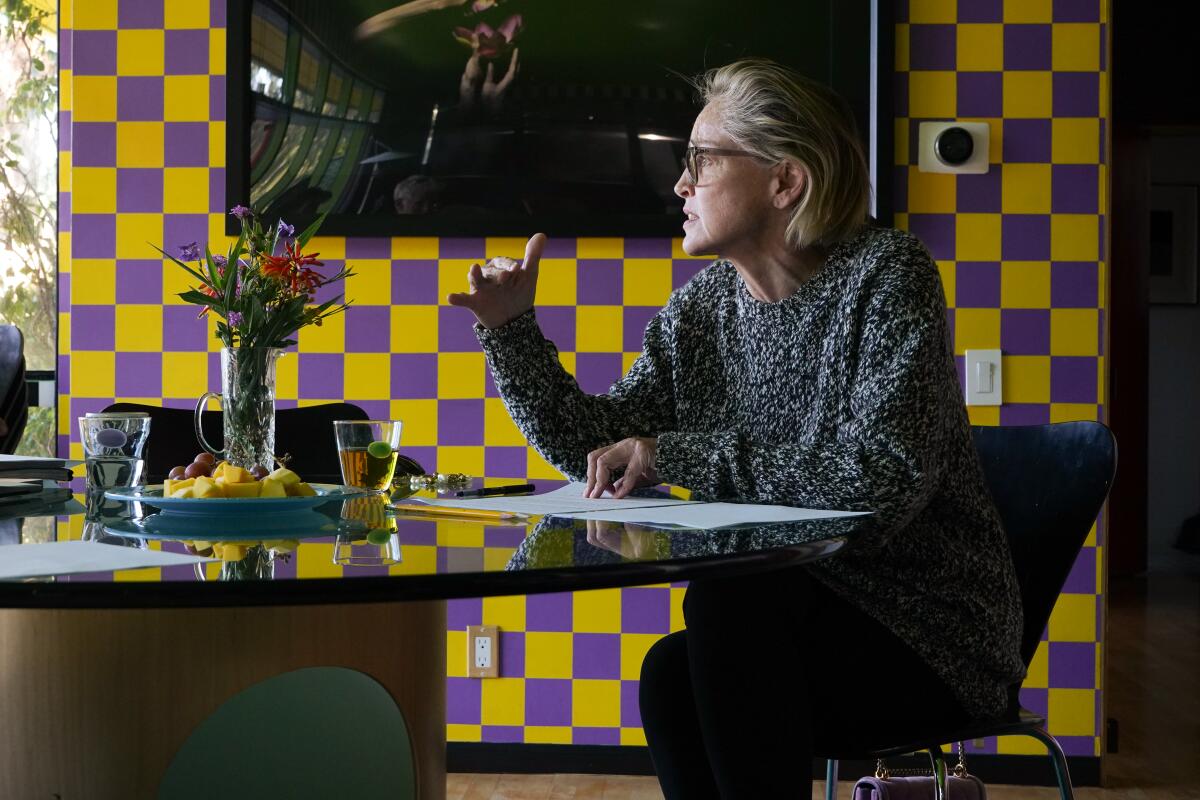
- Share via
In late October, actors Ron Perlman and Sharon Stone, sitting across from each other in Cedering Fox’s home in Studio City, were rehearsing a dramatic reading of Margaret Atwood’s short story “Happy Endings.”
The story attempts to predict what promising or grueling future is to come from John and Mary’s relationship. Perlman and Stone swapped portions of the writing, building up their own character arcs out of a story written without one. As Stone read, Fox interrupted, “This is a new thought.”
Stone jotted down a pilcrow next to the line and began again. This time around, Stone added an alluring pause that oozed with new tension.
“One day James breezes in on his motorcycle,” she continued. As they swapped lines, their pace quickening, Stone and Perlman turned the story into a tennis match argument with Fox’s help. Humor surfaced unexpectedly and the last line landed with a weight that could not be achieved by reading it in solitude.
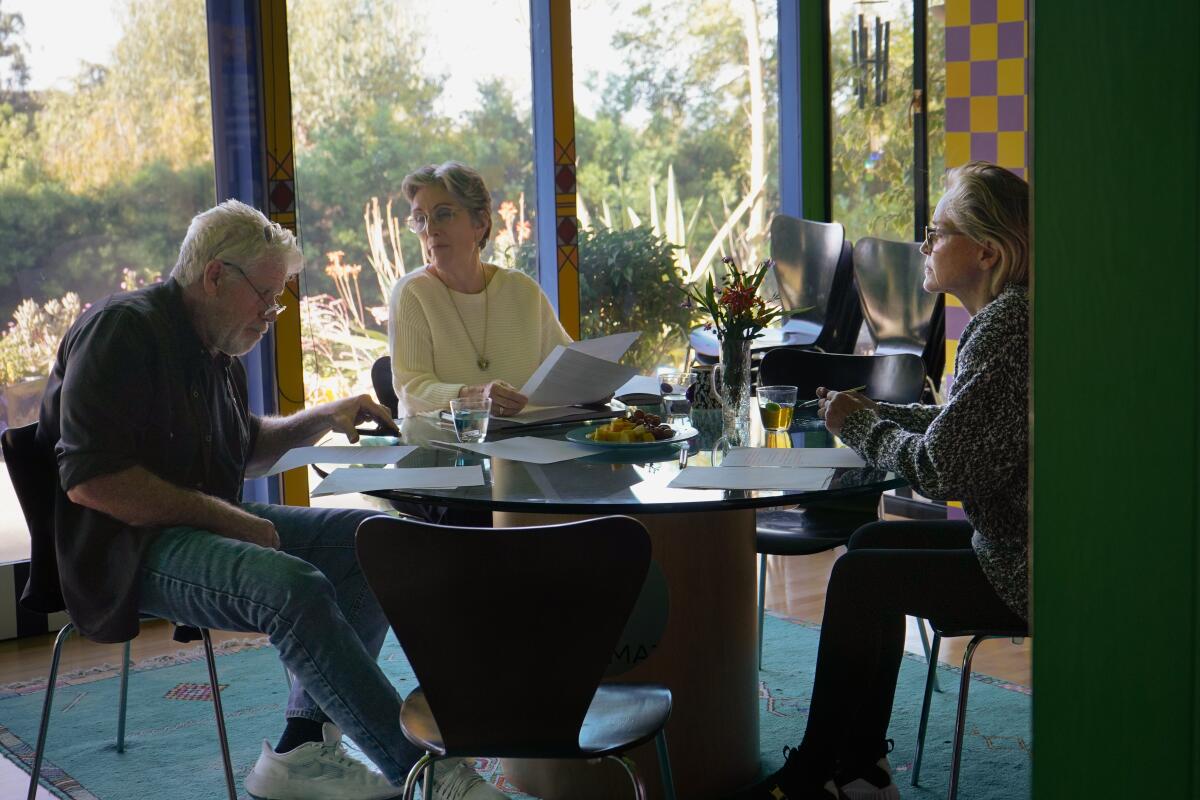
The actors were preparing for WordTheatre’s 20th anniversary celebration, taking place in L.A. on Thursday. The celebration in Southern California comes after separate 20th anniversary events in London and New York City throughout October. The organization brings together well-known actors from film, TV and theater to share dramatic readings of popular literary works. The nonprofit was founded by Cedering Fox — a voice-over announcer, event producer and director — in 2003. It has since expanded its audience across continents and within classrooms through WordTheatre Campus, a program that brings the actors’ performances into local schools to strengthen their curriculums.
Despite the glamour of exclusive celebrity performances, a love for storytelling lies at the core of the organization. The authors themselves are the stars of the show.
‘The power of the single voice’
Fox attributes the origins of WordTheatre to an amalgamation of her own stories. When she first moved to L.A. from N.Y.C., she started doing work directing with the Met Theatre, which has since closed. Darrell Larson, who ran the theater’s Literary Evenings series with KCRW, got a job directing in New York. He turned to Fox as his proxy.
The series invited actors and writers to read and discuss literature. There, Sam Shepard read cowboy poems and William Styron talked about his latest novel. When Larson returned, they became partners for the program and continued for a few years.
Fox jumped between the film industry and the literary world, seeking to bring back the energy created by Literary Evenings.
She recalled visiting Brown University one day with her daughter, where she saw students walk by with headphones in, taking in the bustle of life. She looked over to the library and wondered, “What am I going to leave behind here?”
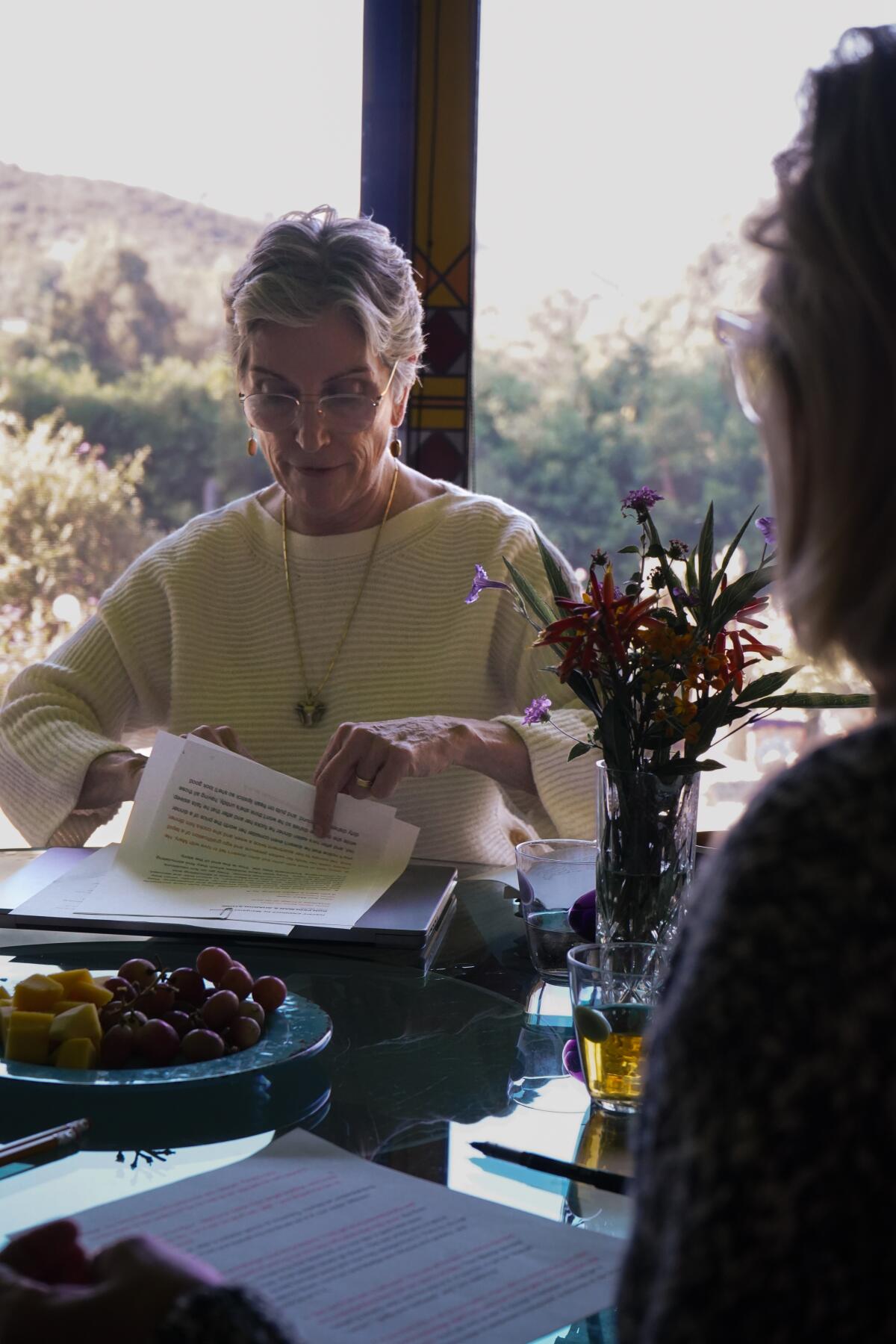
Fox loved great literature, and she loved the way actors could bring words to life. She decided to go out on her own in 2003 with WordTheatre.
“I want to leave behind great actors reading great short stories, and I want them in libraries all over the world so people can listen to them for free,” she says.
For each WordTheatre performance, Fox orchestrates an evening around a particular writer or theme, whether it be stories from Hanif Kureishi or a series of stories about jazz like in “Jazz Re-Evolution.” In preparation for the shows, actors will have a short rehearsal with Fox. The performances are simply constructed: the actor, a podium and the audience (with an occasional musician or dancer).
While simple, the result is a complex look into the writing.
“It was like meeting the story again in a dark alley,” author Sarah Shun-lien Bynum says.
Bynum first participated in WordTheatre in 2009, where Sean Young performed one of her stories. She says she felt like she met a new side of her story, as the actors brought out unexpected elements of her writing.
Charles Yu, who will receive the Storyteller Award alongside Lily Tomlin at the L.A. event later this week, says the experience of hearing his words was “illuminating” as he heard different inflections and emotions he didn’t realize were there before.
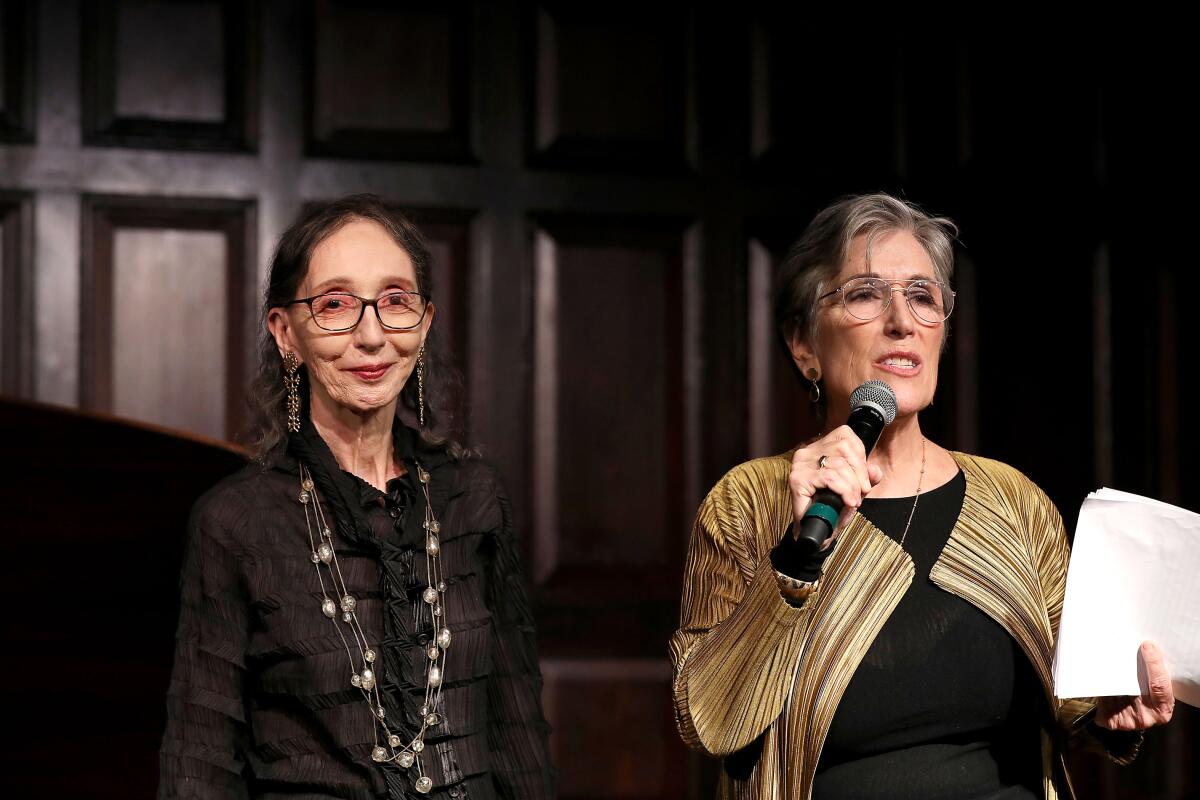
“The reality is a human being reading something aloud to an audience is different than things you assume that someone will read to themselves in their own head,” Yu says.
The same experience goes for the actors. Alfred Molina read a story by Nick Hornby for a performance in 2009. The story initially felt sad and melancholy, but when he brought it to an audience, he found humor in it. He even got “belly laughs” from the audience, he recalls.
Actor Jason George compares the experience of performing literature to working with Shakespeare or Chekhov. It’s like dissecting heightened language that has layers of interpretation below the surface. The only way to learn about its complexities is by reading it aloud.
“When we read just to get the information, we’re basically scanning and we’re flying through it very quickly,” George says. “When you read for performance, you actually start finding the juice in the words.”
This was particularly prevalent in “Jazz Re-Evolution” where writers were playing with phrasing, rhythm and silence. George found a sense of improv in the WordTheatre performances.
Performers can’t look at each other like a traditional play. Instead, they look out at the audience. The fun improv comes in through the words as actors throw lines at each other and trust that the other will toss it back.
Brian Cox, a frequent performer with WordTheatre, says the emphasis is on listening to the words and each other.
“We forget about the power of the single voice,” Cox says.
For the love of literature
Years ago, J.K. Simmons rushed through LAX hoping to go by unnoticed. Fox spotted him amid the rush of rolling suitcases. She approached him “full of energy,” Simmons says. Instead of asking for a selfie, she asked him to consider performing for WordTheatre.
She gave him her information and left. Simmons was intrigued by the idea, which surprised him. Simmons followed up and became part of the ensemble of performers with a love for literature. Fox sent him a story by Richard Bausch that she wanted him to read for a show in 2013. He then got hooked on reading literary works with the organization. Along the way, he discovered his love for Brian Doyle’s writing.
“There’s such a wonderful humanity and compassion and humor that I can’t even begin to wrap my brain around in his writing,” Simmons says of Doyle. “It expands me as a person.”
He first read Doyle’s work for a WordTheatre benefit show in 2016. In 2017, Doyle died from complications of a brain tumor. In June, Simmons saw Doyle’s wife alongside two of their three children at a WordTheatre performance dedicated to the late author. The memory brought Simmons goosebumps.
“It was just a real love fest for one of the most extraordinary human beings I’ve ever been able to encounter, even just on the page,” he says.
For the evening show, he read one of his favorite stories by Doyle, “The Meteorites,” a short memoir about his experience as a summer camp counselor when he was a teenager. Although it sounds mundane, anyone who reads it will fall in love with him, Simmons says.
WordTheatre has also been a site for many new connections. Bynum met her now close friend, author Marisa Silver, at her first event with the organization. George and Marianne Jean-Baptiste mutually raved about each other’s work while working together for a performance.
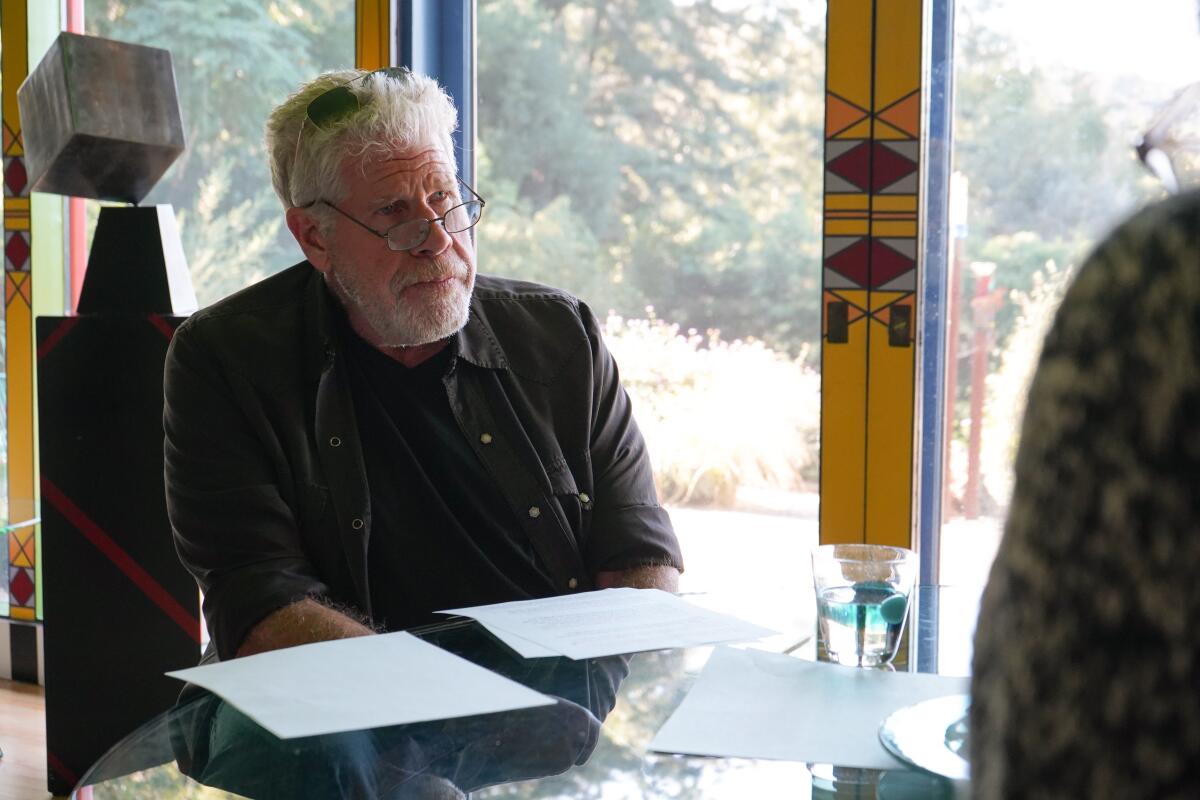
Fox describes WordTheatre as camp, of sorts. Sitting next to Perlman in her dining room last week, Fox turned to him and proclaimed that he was part of the family. His showing later this week will be his first time performing with WordTheatre, and, Fox hopes, won’t be his last.
Since WordTheatre’s 10-year anniversary, the organization has been incorporating music into its events. Its latest fundraising venture is to grow its WordTheatre Campus, a program that enhances language art curricula in participating schools with performances, a digital library and peer review study guides. Fox has big dreams for the program, including making WordTheatre Campus tools available to every school. George believes the program has the ability to make literature “come alive and make it visceral for [the students].”
As the organization expands in the years to come, the 20-year celebration calls people to uplift literature, and those who listen to the words come to life.
“It’s about the storytelling,” Simmons says. “It’s celebrating some of these authors who are not as widely known as I think they deserve to be.”
WordTheatre 20th Anniversary Los Angeles Celebration & Fundraiser
Where: Santa Monica Bay Women’s Club, 1210 4th St., Santa Monica
When: 6:30 p.m. Thursday
Tickets: Starting at $250
Details: wordtheatre.org
More to Read
The biggest entertainment stories
Get our big stories about Hollywood, film, television, music, arts, culture and more right in your inbox as soon as they publish.
You may occasionally receive promotional content from the Los Angeles Times.











